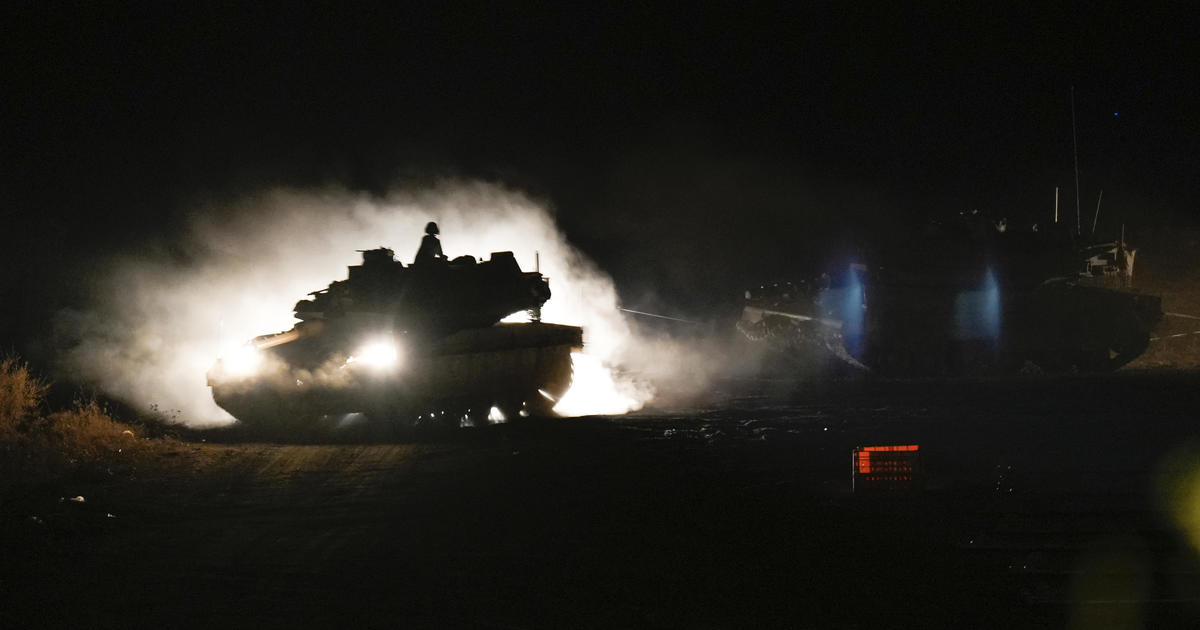The Israeli Defense Forces (IDF) launched a limited ground operation targeting Hezbollah in southern Lebanon, escalating the ongoing conflict. This operation, following days of intense airstrikes, marks a significant development with potentially far-reaching consequences. The IDF’s actions, while described as “localized,” raise concerns about the potential for a wider regional conflict and increased civilian casualties.
Israel’s Ground Incursion into Lebanon
The IDF’s ground operation, initiated after receiving political approval, involved “targeted raids” against Hezbollah infrastructure and operatives near the Lebanese border. The military stated that these targets posed an imminent threat to Israeli communities in northern Israel. This ground incursion, supported by airstrikes and artillery fire, represents a new phase in the ongoing conflict, escalating the intensity beyond the previous days of aerial bombardment.
Justification and Goals
Israel justified the ground operation as a necessary measure to neutralize immediate threats posed by Hezbollah. The operation follows the assassination of Hassan Nasrallah, Hezbollah’s leader, and several other key commanders in recent airstrikes. The IDF aimed to exploit the disruption caused within Hezbollah’s ranks, delivering a decisive blow before the group could reorganize. The extent to which these stated objectives were achieved remains to be seen, with early reports indicating limited clashes.
Strategic Implications
The IDF’s ground operation marks a shift from primarily aerial attacks to a more direct confrontation. This decision signals a strategic assessment that airstrikes alone are insufficient to achieve Israel’s objectives in disrupting Hezbollah’s capabilities and neutralizing immediate threats. The risks are considerable, however, as ground combat increases the likelihood of both Israeli and Lebanese casualties, and potentially international involvement. Furthermore, a protracted ground war could destabilize Lebanon even further, adding a significant humanitarian dimension to the conflict.
Hezbollah’s Response and Regional Fallout
Hezbollah vowed to continue fighting despite the significant losses they have suffered in recent weeks, including the loss of their leader. The group’s acting leader, Naim Kassem, assured the public that Hezbollah is prepared for a ground war and has already replaced commanders killed in recent attacks. This resolve underscores the potential for protracted conflict, despite Israel’s expressed aim of delivering a swift and decisive blow.
Hezbollah’s Preparedness and Capabilities
Hezbollah is a formidable force, possessing a large arsenal of rockets and missiles, along with a well-trained militia numbering in the tens of thousands. The group has spent years preparing for a conflict with Israel, and their response to the ground incursion highlights the scale and intensity of the confrontation to come. The group’s deep-rooted network and ability to quickly adapt to losses will make for a lengthy, difficult confrontation.
Regional Implications and International Concerns
The escalation in Lebanon has raised concerns about the broader regional impact of the conflict. There are fears that the situation could spiral out of control, drawing in other regional actors, and potentially leading to wider-scale conflict involving various external actors. The US has been informed of the ground operation, highlighting the international dimensions of the situation. The potential for spillover into neighbouring countries and international intervention casts a shadow over any immediate resolution.
The Broader Context of the Israeli-Hezbollah Conflict
The current conflict is intrinsically linked to the larger Israeli-Palestinian conflict and the wider regional dynamics involving Iran. Hezbollah’s close ties with Iran and its role in regional conflicts mean that the actions of either side impact international interests considerably. The current situation builds upon decades of tension and prior conflicts between the two groups. The Israeli campaign against Hezbollah also occurs concurrently with the ongoing military operations in Gaza. The multiple battlegrounds, each contributing to the broader context, makes it a very complicated situation.
Historical Precedents and Future Prospects
The 2006 Lebanon War serves as a cautionary tale, highlighting the potential for prolonged and devastating conflict. Although the 2006 conflict ended in a stalemate, the current situation has a much higher level of stakes involved. This suggests that future prospects could be even more grave than what was observed a few years ago. The fact that the situation involves simultaneous military operations in various battlegrounds indicates a potential for wider conflagration in the years to come.
Humanitarian Crisis and Civilian Casualties
The conflict has already caused immense suffering for civilians in Lebanon, with hundreds of deaths reported. Israel’s declaration of multiple villages as military zones indicates continued high levels of danger for the civilians and potential future military operation risks in various other areas as well. The impact on the Lebanese people highlights the broader humanitarian crisis alongside the military implications of this confrontation.
Takeaway Points
- Israel’s limited ground operation in Lebanon represents a significant escalation in the ongoing conflict with Hezbollah.
- The operation follows days of airstrikes and aims to neutralize immediate threats posed by Hezbollah.
- Hezbollah has vowed to continue fighting, despite significant losses, highlighting the potential for a protracted conflict.
- The escalation raises concerns about the potential for a wider regional conflict and further civilian casualties.
- The conflict is deeply embedded within broader regional dynamics, linking it to the Israeli-Palestinian conflict and Iran’s influence.




